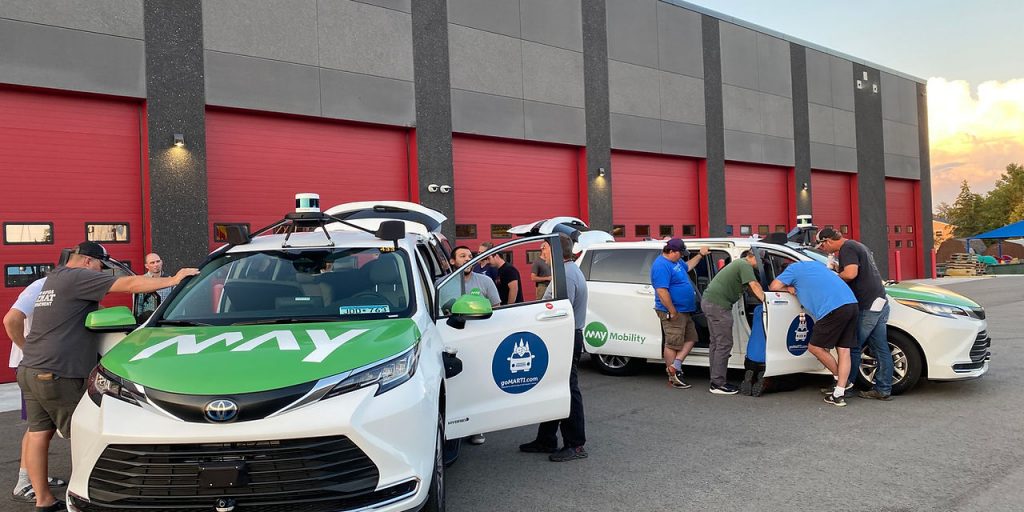Rural Minnesota community test drives autonomous shuttle service that features ADA-compliant minivans
To this point, experimentations with autonomous vehicle technology has been mostly centered in large, connected cities like Las Vegas. A rural region in Minnesota is working to change that: In a first-of-its-kind rural pilot program called goMARTI (Minnesota’s Autonomous Rural Transit Initiative), a fleet of five self-driving Toyota Sienna Autono-MaaS minivans, three of which will be American Disability Act-compliant and wheelchair accessible, launched this week in Grand Rapids, Minn.
The goal of the pilot program “is to demonstrate that AVs (autonomous vehicles) reach their greatest societal impact when used for public transportation. The deployment will allow anyone to book a free, on-demand, shared ride from an AV. The project will also advance the deployments of AVs in rural terrains and diverse and sometimes harsh weather conditions,” reads a statement from May Mobility, which is working the project along with Via, the creator of TransitTech, in collaboration with many other organizations.
The pilot will be carried out over 18 months, with the autonomous vehicles covering 70 pickup and drop-off points over 17 square miles.
“The goMARTI demonstration project will provide great insight on how the technology stands up in rural Minnesota winter conditions,” said Nancy Daubenberger, commissioner of the Minnesota Department of Transportation (MnDOT). “MnDOT continues its commitment to collaborate with local communities and valued partners to find innovative ways to provide safe, accessible transportation options for all Minnesotans.”
While rides are open to everyone, the program is designed to serve those without a car or who have mobility challenges—with the aim of using technology to help everyone achieve an independent lifestyle supported by convenient travel, regardless of income or ability.
“We believe that Grand Rapids will serve as a pioneer for how autonomous, innovative mobility can transform the way small communities move,” said Israel Duanis, head of autonomous vehicles at Via, adding that “AVs are most impactful when they are accessible, shared, and complementary to a community’s public transit system.”
The project is expected to expand mobility access for Grand Rapids’ community by complementing its existing fixed-route bus lines, allowing residents and visitors to connect with the city’s restaurants, grocery stores, pharmacies, churches, fitness centers, and more, a joint statement from the companies says. The autonomous service will also provide coverage on weekday nights and weekends when other options aren’t readily available.
“We’re passionate about making transportation better for everyone, and providing innovative, accessible transportation solutions to rural communities is a key next step in that journey,” said Edwin Olson, CEO at May Mobility. “May Mobility and Via are proud to bring cutting-edge technology and services to Grand Rapids with the first commercial fleet of Toyota Sienna Autono-MaaS vehicles.”
Rides can be booked through an AI-based app system powered by Via, which matches riders headed in the same direction into one vehicle to create efficient, flexible and shared trips. Riders without smartphones can also book by calling 211. Trips can be booked Tuesday through Friday from 2 to 10 p.m., 10 a.m. to 1 p.m. on Saturdays, and Sundays from 8 a.m. to 2 p.m.
The initiative was created, built and deployed by MnDOT, City of Grand Rapids, The PLUM Catalyst, May Mobility, Department of Iron Range Resources & Rehabilitation, Itasca County, Via, University of Minnesota, Arrowhead Transit and Mobility Mania, among others.




















